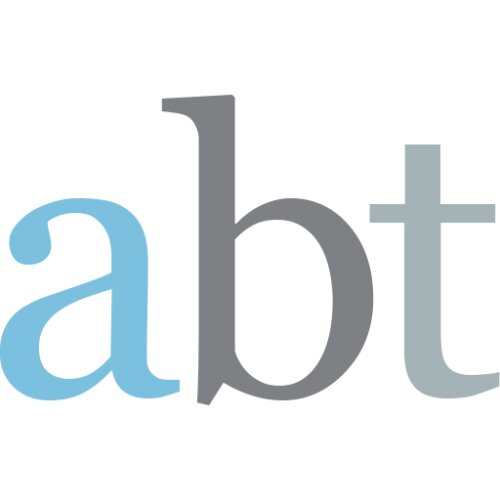Best Restructuring & Insolvency Lawyers in Guernsey
Share your needs with us, get contacted by law firms.
Free. Takes 2 min.
Or refine your search by selecting a city:
List of the best lawyers in Guernsey
About Restructuring & Insolvency Law in Guernsey
Guernsey is a prominent international finance centre with a well-established legal system supporting both local businesses and global enterprises. Restructuring and insolvency law in Guernsey provides a framework for companies and individuals facing financial distress or insolvency. The jurisdiction has its own legal procedures for handling company restructurings, voluntary and compulsory liquidations, and creditor arrangements. Guernsey law aims to protect the legitimate interests of creditors, promote business rescue where possible, and ensure fair and orderly processes for winding up insolvent entities. These laws are designed to maintain confidence in Guernsey as a financial centre while balancing the needs of debtors and creditors.
Why You May Need a Lawyer
There are several reasons why individuals and businesses may seek legal advice concerning restructuring and insolvency in Guernsey:
- Facing significant financial distress or insolvency as a company director or business owner
- Needing to protect personal or company assets from creditor actions
- Being a creditor concerned about how to recover debts from an insolvent entity
- Responding to statutory demands, liquidation petitions, or administration orders
- Requiring advice on the implications of insolvency for directors’ duties and liabilities
- Considering restructuring options such as company voluntary arrangements or schemes of arrangement
- Handling cross-border insolvency issues or recognition of foreign insolvency proceedings
- Pursuing or defending claims arising from allegations like wrongful or fraudulent trading
Due to the complexity of insolvency law and the significant consequences for all parties involved, professional legal guidance is essential for navigating these processes effectively and in compliance with Guernsey law.
Local Laws Overview
Guernsey’s restructuring and insolvency regime is distinct from the UK but shares many foundational principles. The key legislation governing corporate insolvency includes the Companies (Guernsey) Law, 2008. Important features of Guernsey’s insolvency and restructuring landscape are:
- Liquidation Processes - Both compulsory (court-ordered) and voluntary liquidations are available. The grounds for winding up and priority of creditor claims are set out in detail.
- Administration Orders - Guernsey allows for administration orders to facilitate business rescue and restructuring, appointing administrators to attempt to save the company as a going concern or achieve a better outcome for creditors than liquidation.
- Creditor Rights - Creditors may petition for liquidation and have a defined role in the process, including forming creditors’ committees in larger cases.
- Director Duties - Directors must be aware of their duties, especially as insolvency approaches. Wrongful or fraudulent trading can lead to personal liability.
- Cross-Border Insolvency - Guernsey often cooperates with foreign insolvency proceedings, although specific local laws apply to the recognition and assistance of foreign insolvency officials.
- Individual Insolvency - Separate legal provisions exist for individuals, predominantly under the Law of Bankruptcy (Désastre), 1929 and subsequent amendments.
The local courts - mainly the Royal Court of Guernsey - oversee most insolvency proceedings, often with the involvement of licensed insolvency practitioners. The regulatory and administrative framework ensures fairness and transparency throughout the process.
Frequently Asked Questions
What is the difference between restructuring and insolvency?
Restructuring typically refers to efforts to reorganize a company's finances, structure, or operations to avoid insolvency, improve efficiency, or deal with financial distress. Insolvency means being unable to pay debts as they fall due or having liabilities that exceed assets, which may trigger insolvency procedures such as liquidation.
Can I start insolvency proceedings in Guernsey if the debtor is not based on the island?
Insolvency proceedings can often be started against Guernsey-incorporated companies, even if their main operations or directors are outside the island, as long as legal criteria under Guernsey law are met.
What are the main types of insolvency procedures in Guernsey?
The main procedures are voluntary liquidation, compulsory liquidation (by court order), and administration orders. There are also provisions for schemes of arrangement and creditor arrangements.
What are the duties of directors when a company is in financial difficulty?
Directors must place the interests of creditors before those of shareholders and act to minimize losses to creditors. Failing to do so can result in personal liability for wrongful trading.
What is wrongful trading in Guernsey?
Wrongful trading occurs when directors continue to trade or incur liabilities when they knew or ought to have known there was no reasonable prospect of avoiding insolvent liquidation. This can result in directors being held personally liable for losses.
How do creditors recover money from an insolvent company?
Creditors may participate in liquidation proceedings, submit proof of debt claims, and attend creditors’ meetings. The priority of claims is determined by Guernsey law.
Can individuals be declared bankrupt in Guernsey?
Yes, individuals can be made subject to bankruptcy proceedings known as Désastre under Guernsey law, leading to the distribution of their assets among creditors.
What happens to employees during a company insolvency?
Employee rights are protected to some extent, but employees are considered unsecured creditors. Wages and certain entitlements may have priority claims in a liquidation.
Does Guernsey law recognize foreign insolvency proceedings?
Guernsey courts may recognize and assist foreign insolvency proceedings, but local rules and procedures must be followed for recognition and enforcement.
Can insolvency or restructuring proceedings be challenged?
Yes, interested parties may challenge aspects of insolvency proceedings in court, especially if proper procedures are not followed or rights are infringed.
Additional Resources
For further help and specialist advice on restructuring and insolvency in Guernsey, the following bodies and resources can be useful:
- Guernsey Registry - Oversees company registrations, filings, and certain statutory notices
- Guernsey Financial Services Commission (GFSC) - Regulates financial services and insolvency practitioners on the island
- Royal Court of Guernsey - The island’s main court for insolvency and restructuring matters
- Licensed Insolvency Practitioners - Professionals authorized to act as liquidators, administrators, or trustees
- Chamber of Commerce and Local Business Associations - May offer guidance and referrals for companies in distress
Many legal practices in Guernsey have dedicated teams specializing in restructuring and insolvency, and a consultation is often the best starting point for tailored advice.
Next Steps
If you are facing financial distress, considering restructuring, or are concerned about insolvency in Guernsey, take the following steps to protect your interests:
- Gather all relevant financial documents and information
- Seek early advice from a qualified Guernsey legal adviser or licensed insolvency practitioner
- Discuss all available options - including restructuring, formal insolvency processes, or negotiated settlements
- Be transparent with creditors, employees, and stakeholders about your situation as appropriate
- Act promptly - delays can limit your options and increase risk of liability
- Follow professional advice carefully to ensure compliance with Guernsey law
Timely, expert legal advice can make a significant difference in the outcome of any restructuring or insolvency situation in Guernsey. If in doubt, arrange a consultation with a legal specialist as soon as possible.
Lawzana helps you find the best lawyers and law firms in Guernsey through a curated and pre-screened list of qualified legal professionals. Our platform offers rankings and detailed profiles of attorneys and law firms, allowing you to compare based on practice areas, including Restructuring & Insolvency, experience, and client feedback.
Each profile includes a description of the firm's areas of practice, client reviews, team members and partners, year of establishment, spoken languages, office locations, contact information, social media presence, and any published articles or resources. Most firms on our platform speak English and are experienced in both local and international legal matters.
Get a quote from top-rated law firms in Guernsey — quickly, securely, and without unnecessary hassle.
Disclaimer:
The information provided on this page is for general informational purposes only and does not constitute legal advice. While we strive to ensure the accuracy and relevance of the content, legal information may change over time, and interpretations of the law can vary. You should always consult with a qualified legal professional for advice specific to your situation.
We disclaim all liability for actions taken or not taken based on the content of this page. If you believe any information is incorrect or outdated, please contact us, and we will review and update it where appropriate.
Browse restructuring & insolvency law firms by city in Guernsey
Refine your search by selecting a city.










